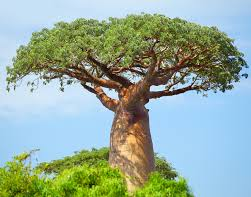What of the History of Money?
- By kwende ukaidi
- •
- 27 Sep, 2023
- •
Celebrating the Great Afrikan History Continuum

Afrikan souls are beyond doubt
superlative builders as their norm of pinnacle civilisation construction has
revealed throughout the ages since the earliest of times. As such, this primary
and spirit people of creation are also pioneers and exceptional constructors of
their self-economy and its various commodity tools which vitally service their
high civilisation. Amongst the commodity tools that Afrikan souls defined, determined
and governed for themselves from age-to-age was that of money.
According to a contemporary mainstream source the history of money is described in the following way:
“The history of money is the development over time of systems for the exchange, storage, and measurement of wealth. Money is a means of fulfilling these functions indirectly and in general rather than directly, as with barter”.
In a state of interruption and disruption, others that mean the Afrikan ill have sought to dehumanise the Afrikan and render the Afrikan as the commodity tool. Subject to such dire imposition the knowingness Afrikan souls hold of their own history of money can suffer to state the least. Left to wallow in the wilderness of unknowingness of themselves and their experience, Afrikan souls can end up exclusively servicing and building the economies of others whilst totally neglecting their natural norm of self-economy construction.
Despite such challenges, it is for the Afrikan to recover their history and empower themselves with the knowledge of their self-determined and upright systems for the exchange, storage and measurement of wealth. This of course inherently speaks to the recovery and thriving of their self-economy from which money is naturally defined and functionally expressed in service of their highly civilised norm.
Here then, history and money are not separate subjects that ought never cross paths. To the contrary, self-economy and its commodity of money in its establishment and use in service of grand civilisation is very much a part of the Afrikan history continuum. Therefore, there is much by way of empowerment to be gleaned and applied from a level of history knowingness in service of the imperative thrust of ascension and the restoration of optimally civilised living. In this, each Afrikan soul from whatever station, level or status can take steps of upright engagement in the recovery of knowingness of their history to empower ascension accordingly. At the same time the Afrikan does the self a great service in safeguarding against contaminants of ill, self-destructive wrongdoings and the like.
This primary people of creation, built the world’s greatest and most enduring civilisations, out of which their pioneering and applied use of money can yield many key lessons for their empowerment in the now and time to come. Indeed, self-economy brilliancy expressed in the now can be a valuable inheritance for the generations of soul people to come.
Afrikan Historia Msimu is an observance period for the duration of the tenth month of the year (so-called October). This is a special time for learning, growth and development of the Afrikan experience in the world. It is a time of spiritual and cultural elevation as Afrikan history is restored to fabric of life in the living knowingness of the then, the now and tomorrow. Great ones of the Afrikan journey are highlighted and the symbols relevant to the time invigorate life in the imperative onward flow of global Afrikan ascendancy. This wonderful observance is a part of the cultural calendar of the Universal Royal Afrikan Nation (URAN).
The Universal Royal Afrikan Nation (URAN) is an Afrikan-centred spiritual and cultural mission for ascendancy that embodies living spiritually and culturally rooted life. To find out more about URAN and its spiritual-cultural mission for liberty and nationhood click here. The exquisite URAN pendant can be obtained online by clicking here.
In his capacity as an Afrikan-centred spiritual cultural practitioner this author is available for further learning in this regard and also for the carrying out of ceremonies such as naming and name reclamation. For details please click here.
Afrikan World Studies programmes are important forms of study in understanding the Afrikan experience. There are a range of subjects covered on these programmes including History, Creative Production, Psychology and Religion. To find out more about these learning programmes please click here. For the video promo for these learning programmes click here.
At nominal cost, also consider acquisition of an a4 laminate poster of articulations by this author when visiting the Yemanja-O establishment to enrol, consult, learn, gather or otherwise.
Also, visit www.u-ran.org for links to Afrikan liberation Love radio programme on Universal Royal Afrikan Radio online.
